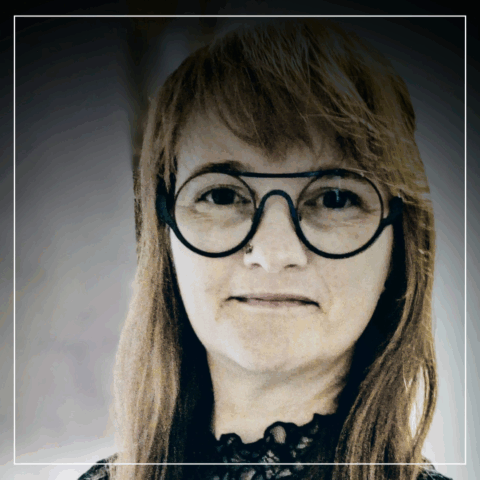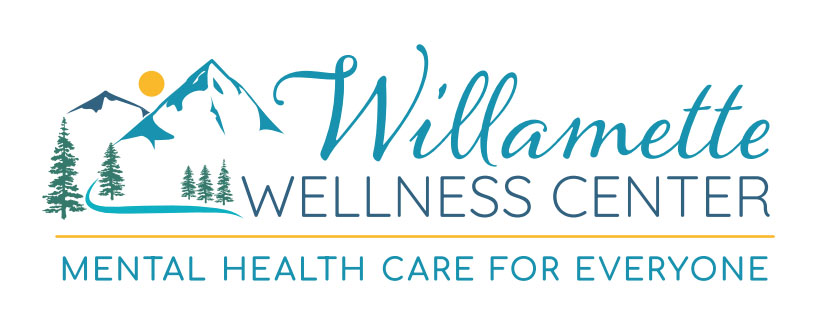Blog Post By Arin Wallington
Online Therapist Rose Walker—Carrying Hope Through Grief & Healing

“When clients come to me, they’re typically at a place where it feels hopeless. I get to carry that hope for them—until they’re able to pick it up and carry it for themselves.”
For Rose Walker (she/her), therapy isn’t just about treatment plans or coping skills. It’s about presence—and holding hope steady when her clients can’t.
Whether they’re grieving, living with chronic illness, or working through complex trauma, she offers something both simple and profound: the experience of being seen, validated, and gently reminded that healing is still possible.
A Life Shaped by Compassion and Curiosity
Rose’s path to counseling weaves through literature, nonprofit work, and personal healing. With an undergraduate degree in literature and fifteen years in the nonprofit world, she’s always been drawn to stories—especially the ones people tell themselves about who they are.
When she finally decided to pursue her long-held dream of becoming a therapist, it was the pandemic that pushed her to take the leap.
“We all had these awakening moments during COVID,” she reflects. “Mine was, it’s time. It’s time to just go back and get my master’s degree.”
That decision brought her full circle to what her teenage self already knew: this work was where she belonged.
“My teenage self was right. Now that I’m doing this work, I know this is where I’m supposed to be.”
How Therapy Helps Heal Grief, Chronic Illness, and Trauma
Rose specializes in grief, chronic pain and illness, and complex trauma—areas that reflect her own lived experience. She knows what it’s like to feel unseen or dismissed, and she brings that empathy into every session.
“Because I’ve transitioned through this journey already, I get to carry that hope for them until they can carry it for themselves.”
Clients who arrive feeling hopeless often find Rose’s presence grounding. She meets them with equal parts professional training and personal understanding—helping them see that change, while slow, is possible.
“Having both personal and professional experience gives me empowerment to help others through these same things,” she says. “I can empathize deeply because I’ve been there.”
For Clients Living With Chronic Illness and Invisible Pain
Rose works extensively with people navigating chronic pain and chronic illness, especially women who’ve spent years seeking answers. Many come to her after a long history of medical gaslighting or being told that their symptoms are “all in their head.”
“It takes women, on average, about five years to get a diagnosis for an invisible illness,” she explains. “By the time they reach me, they just want to be heard and validated.”
When clients ask if she understands what they’re going through, Rose doesn’t hesitate. “A lot of what you’re experiencing, I’ve also experienced myself,” she reassures them.
That shared understanding often brings the first glimmer of relief—and, for many, the first flicker of hope in years.
What Trauma-Informed Therapy Looks Like with Rose
When Rose describes trauma-informed care, she keeps it simple: it means being fully present.
“We’re talking about people who grew up in environments where they were never heard,” she says. “So I notice. I slow down. When I see tears, I pause and ask what’s happening for them. Being noticed is healing.”
That attunement is the foundation of her sessions. It helps clients learn that safety isn’t about perfection—it’s about being seen and accepted exactly as they are, in that moment.
Small Daily Practices That Restore Calm
Therapy with Rose often includes small, practical techniques that help clients regulate their nervous system between sessions. One of her favorites? Humming.
“Even one minute of humming can clear the brain and calm the body,” she says. “It’s perfect for people who feel they can’t meditate.”
Drawing from both polyvagal theory and her master’s in Buddhism, Rose teaches clients to hum or chant softly—sometimes the sound “VOO,” sometimes “OM.” These vibrations stimulate the vagus nerve, creating an immediate sense of calm.
She pairs this with another simple practice from Internal Family Systems (IFS): acknowledging your inner parts. When a difficult feeling arises, she suggests taking five seconds to say: “I see you. I understand why you’re here.”
“We always say, ‘give space to your emotions,’ but nobody knows what that looks like,” Rose explains. “This is what it looks like—five seconds of acknowledgment. Over time, your parts learn to trust you. They don’t have to be so hyper-vigilant.”
Awareness as Freedom
Many clients come in believing awareness isn’t helpful—they already know what’s wrong, so what’s the point? Rose challenges that idea.
“Awareness is more than 50% of the battle,” she says. “Because awareness brings freedom of choice.”
In her sessions, awareness becomes a doorway. When clients can recognize their parts—how they show up, speak, or feel in the body—they gain agency. They can respond with compassion rather than reaction.
“When clients start a session by saying, ‘I found a new part today,’ I know they’re on the path to not needing me anymore.”
Carrying Hope, Together
Hope, for Rose, isn’t abstract—it’s something shared and passed between therapist and client until it feels strong enough to hold alone.
“For people who’ve never been seen or validated, being noticed is healing,” she says. “I’ll carry the hope for them until they can carry it themselves.”
Her sessions are compassionate, practical, and deeply human—a balance of presence and skill that helps clients rediscover trust in their own resilience.
Rose works with adults across Oregon and the Portland metro area via secure telehealth sessions and welcomes clients seeking support for grief, trauma, anxiety, or chronic illness. Fill out the new client form to get started.

